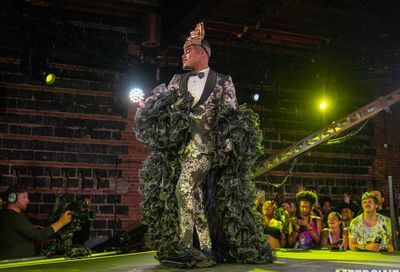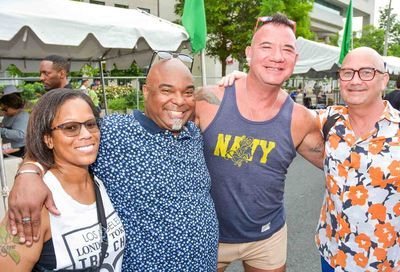Gay couple denied chance to have baby through surrogacy challenges Utah law
Utah's current surrogacy law requires that a couple prove the "mother" cannot have children without risking her health

A gay couple in Utah that has been denied the chance to use a surrogate to have a biological child of their own is awaiting a decision from the Utah Supreme Court as to whether Utah’s current surrogacy law discriminates against same-sex male couples.
The couple, known only by their first names, Noel and Jon, had tried to arrange a surrogacy agreement with a woman willing to help them have a baby, but the agreement was rejected by a judge in southern Utah, reports the Salt Lake Tribune.
In that decision, Judge Jeffery C. Wilcox, of the 5th District Court, noted that current surrogacy law requires couples to prove that the woman intending to be the child’s mother can’t have children without risking her health before a (presumably heterosexual) couple resorts to surrogacy. As a result, he concluded, he could not approve the surrogacy agreement because neither of the prospective parents was female.
Noel and Jon challenged the law, appealing Wilcox’s decision to the state Supreme Court, which heard arguments in the case on Tuesday.
Edwin Wall, the couple’s attorney, alleges that the law discriminates against same-sex couples. Wall argued in court that the law, which has not been amended or updated since the Supreme Court’s 2015 decision legalizing marriage equality nationwide, violates both the due process and equal protection clauses of the U.S. Constitution, and the “uniform operation of law” clause in Utah’s Constitution.
“As written, [the law] creates two classes of intended parents; one class for married same-sex male couples and another class for married couples where at least one of the intended parents is female,” Wall wrote in a brief submitted to the state Supreme Court prior to the hearing.
In a surprise move, the state of Utah is not challenging the couple’s right to enter into a surrogacy agreement. In briefs filed with the court, lawyers from the Office of Utah Attorney General Sean Reyes said that the law should be read as gender-neutral for purposes of implementation.
But state Supreme Court justices fretted over a strict interpretation of the law, with Justice John Pearce implying that the court might have to strike down the law as unconstitutional and urge the Utah legislature to rewrite the law using language that is explicitly gender-neutral.
The court did not immediately rule on the case.
If the judges do decide to declare the law unconstitutional, it could mark the first time any U.S. court has overruled a state’s surrogacy laws. But that does not mean Noel and Jon will immediately be able to become parents, as the law will have to be rewritten in a way that does not exclude gay male couples who wish to become parents.
While Utah lawmakers have not been as hostile to LGBTQ rights as some other state legislatures, there is no guarantee that they would approve any revision of the law. And in other states, both judges and lawmakers alike have leaned on gender-specific language, such as “mother,” “father,” “wife” or “husband” in order to prevent same-sex couples from marrying or having children.
Utah case law has been mixed when dealing with same-sex parental rights. In 2015, a lesbian couple successfully sued the state when it refused to list both mothers as legal parents on the child’s birth certificate. But another lesbian couple saw their foster daughter removed from their care, with the judge in the case ruling that the child would fare better if she had heterosexual parents. That decision was later reversed after public outcry.
Support Metro Weekly’s Journalism
These are challenging times for news organizations. And yet it’s crucial we stay active and provide vital resources and information to both our local readers and the world. So won’t you please take a moment and consider supporting Metro Weekly with a membership? For as little as $5 a month, you can help ensure Metro Weekly magazine and MetroWeekly.com remain free, viable resources as we provide the best, most diverse, culturally-resonant LGBTQ coverage in both the D.C. region and around the world. Memberships come with exclusive perks and discounts, your own personal digital delivery of each week’s magazine (and an archive), access to our Member's Lounge when it launches this fall, and exclusive members-only items like Metro Weekly Membership Mugs and Tote Bags! Check out all our membership levels here and please join us today!





























You must be logged in to post a comment.